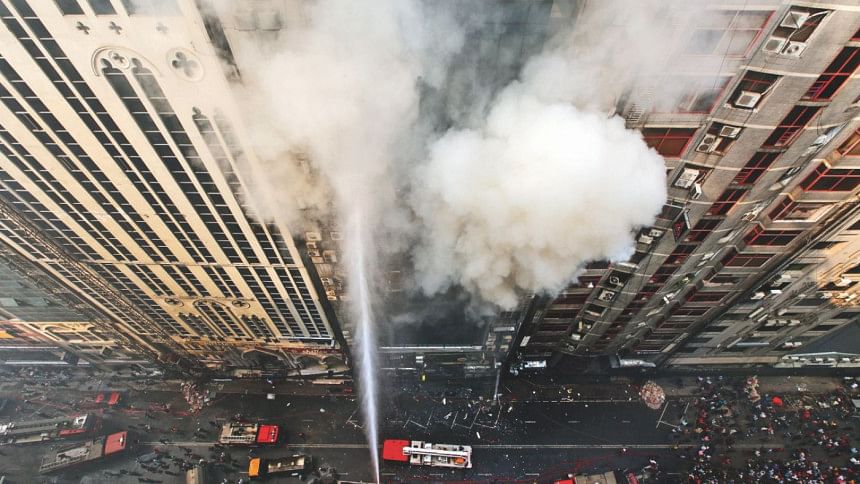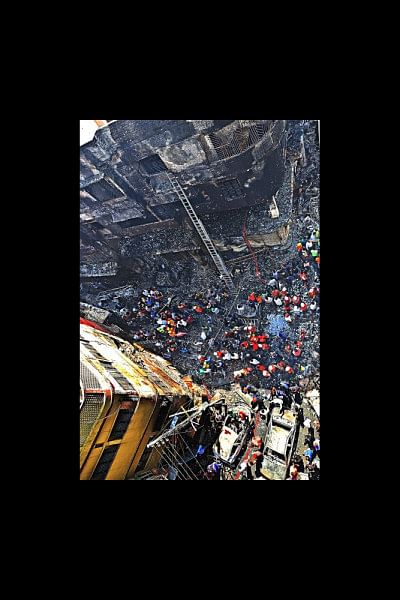Healing from grief


Many people today do not know how to grieve in a healthy way. In a fast paced society, people often have no time to allow this natural process to complete its course. There is usually a hidden pressure to hurry the process to get on with life. However, grieving after a loss is essential for healthy living, and it is impossible to put a deadline on it.
There are some common myths like "It is best to move away from grief instead of towards it," "tears are a sign of weakness," etc.
There are many variables that can impact a grieving process, and each of these processes are unique, as are the grievers. Every grieving process and every griever is unique. Personality, available resources, support, previous experiences of loss, nature of relationship with the dead, coping ability etc. are just a few of the determining factors in the griever. Unexpected and untimely deaths, violent deaths, monumental loss, inability to access dead body etc. could complicate the grieving process to a great extent.
Grief can trigger multiple layers of emotions, it can overpower rational thinking process and off-set the autonomic nervous system response in the body. It could take anywhere from a few days to years to bring back harmony in all these levels. Unequivocally, grievers of all unnatural deaths deserve finding an answer, receiving justice, giving the loss a meaning and proper closure on the abrupt rupture of the relationship.
In cases of overwhelmingly traumatic incidents (e.g. families and victims of Chawkbazar and Banani fire incidences), initially, people rally around grievers, perform rituals and pay tribute to the dead, along with offering support and resources to the survivors. All these helps to bring the community together, help people to reflect on the temporary nature of life and elevates humanity in certain ways. The universe has its own reasons and ways of shaking people up to the core, I guess!
However, the loss becomes more a personal, permanent and isolating experience for only the near and dear ones as time passes by. Unfortunately, grief for them can become a very real, painful and complicated journey.
A wide range of emotions like shock, denial, anger, sadness, emptiness, guilt, bargaining, euphoria, shame, depression, letting go, acceptance, numbness etc. can be experienced, in any number of order. Preoccupation with thoughts of loss, dreams, nightmares, sometimes hallucinations may also occur. Grief can be experienced like the waves of an ocean, with ebbs and flow. It can also hit us quite unpredictably, like a tsunami, and entirely overwhelm us. It takes patience, faith, healthy detachment, and humility, to ride out those waves and rebuild life from the ashes!


Physical symptoms could include shortness of breath, tightness in throat or chest, stomach discomfort, fatigue, sleep problem, headaches, dizziness, weight loss, getting sick more often (like flu, cold etc.). Some behavioural changes may include restlessness, inability to focus or complete daily tasks, isolation, absent-mindedness, overworking to stay distracted from distressing thoughts etc.
If possible, don't make major decisions during periods of grief, and instead, seek good advice, work but do not overdo it, and stay in familiar surroundings.
Grief changes us in many ways. We initially struggle to relieve the distress and anguish of suffering, we struggle to give sense and meaning to it, we experience disconnection from others and from ourselves. Then eventually, we recover and find wholeness again. We gain a new understanding about the world and our place in it- we need to do this in order to heal.
Usually grief is a self-regulating process and comes to a natural conclusion. For some people and some relationships, it can be a matter of a few months, for others it could be a few years. There is a fear that some kind of griefs can never end, depending on what age it has been experienced in and the extent of suffering it has caused.
Grievers and survivors deserve proper attention and care from health services, without unnecessarily pathologising the healing process. Sometimes, grief is so enormous that counselling becomes essential to facilitate the healing. Timely appropriate intervention is of utmost importance to prevent complications arising from grief in later life.
When the natural healing process is blocked, conditions like PTSD (post-traumatic stress disorder), depression, addiction etc. can sneak in and quality of life goes into a downward spiral. Some survivors might start having debilitating survivor's guilt. Apparent intact physical health can be very misleading to a shattered internal state.
At the end of the day, when the outpour of support has ended, promises and sympathies have dried out, physical and mental health problems start to resurface, appropriate and adequate medical service is the very basic thing a griever (who has no health insurance policies) should be offered, free of cost, by a good samaritan.
Photo: Amran Hossain, Palash Khan, Prabir Das

 For all latest news, follow The Daily Star's Google News channel.
For all latest news, follow The Daily Star's Google News channel. 



Comments